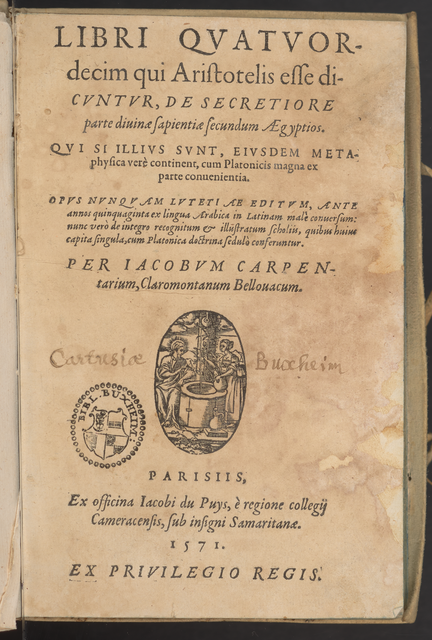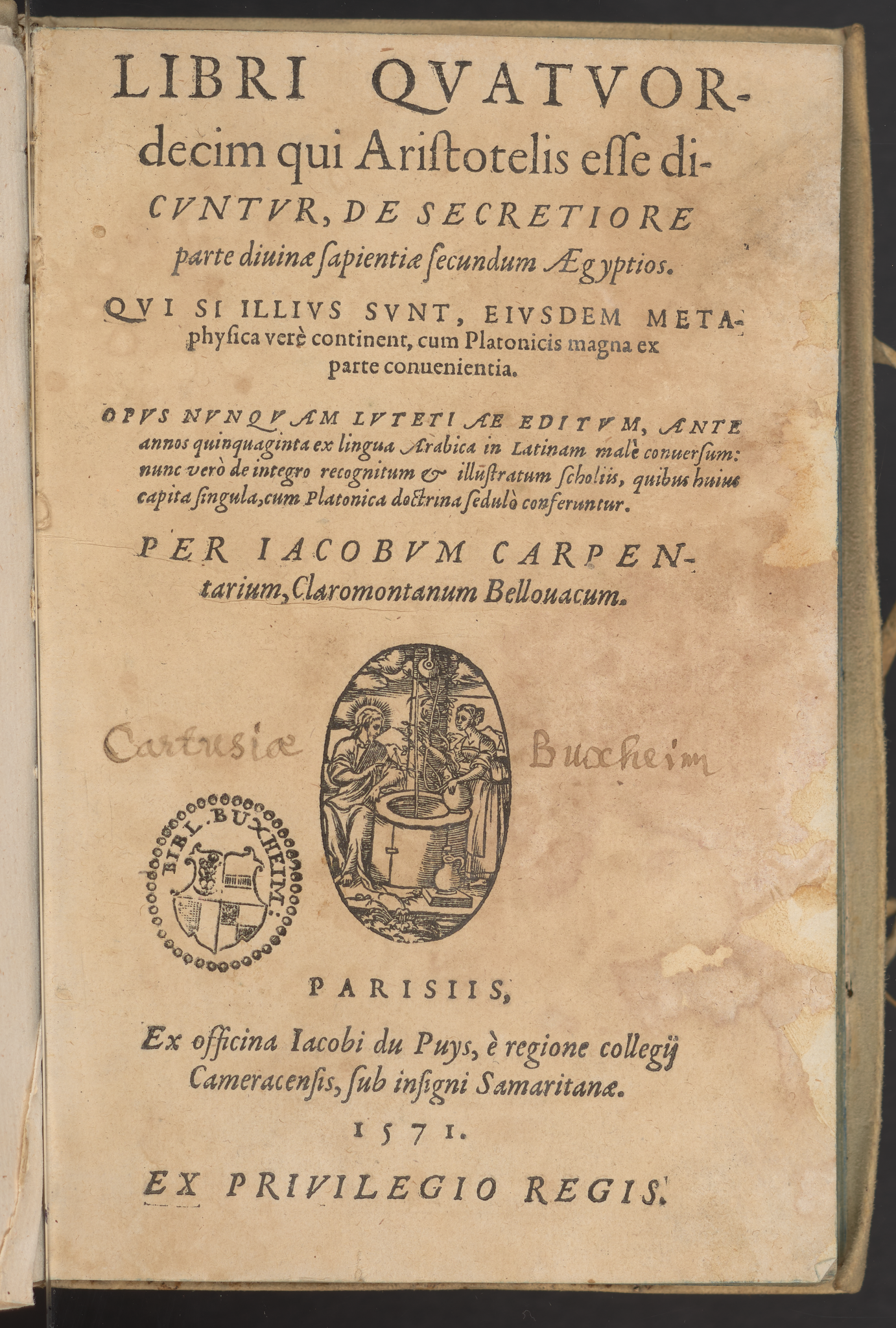XO53 Libri quatuordecim qui Aristotelis esse dicuntur, De secretiore parte diuina sapientiae secundum Aegyptios : qui si illius sunt eiusdem metapysica verè continent cum Platonicis magna ex parte conuenientia : opus nunqam lutetiae editum, ante annos quinquaginta ex lingua Arabica in latinam malè conuersum / nunc verò de integro recognitum & illustratum scholiis quibus huius capita singula cum Platonica doctrina sedulo conferuntur

Full description
Jacques Charpentier, Libri quatuordecim qui Aristotelis esse dicuntur, de secretiore parte diuina sapientiae secundum aegyptios (Paris: Ex officina Iacobi du Puys, 1571).
Penn Libraries, Kislak Center for Special Collections, Rare Books and Manuscripts, GrC Ar466 Ef57 1571
The Theologia Aristotelis is an Arabic paraphrase of sections of Plotinus’s Enneads, maybe based on Porphyry’s commentary on his master's work. The work presents a synthesis of Neoplatonic ideas with Aristotelian ones, suggesting an agreement between the two traditions and even with monotheistic faith. The work, considered a translation from Aristotle's lost Greek original, was translated into Latin by a Jewish scholar, Mosé Rovas, and printed in a revised version by Pier Nicola Castellani in 1519. Jacques Charpentier (1521-1574) further revised it in 1571. Charpentier was a professor at the University of Paris and the Collège Royal, who supported the conciliability of Plato and Aristotle. Precisely for this reason, he was inclined to consider the text genuinely Aristotelian. Charpentier was a bitter enemy of Petrus Ramus (d. 1572), who fought against the supremacy of Aristotle in the university curriculum. Unsurprisingly (and correctly), Ramus considered the Theologia an apocryphal work.
Comments
to view and add comments.
Annotations
No one has annotated a text with this resource yet.


